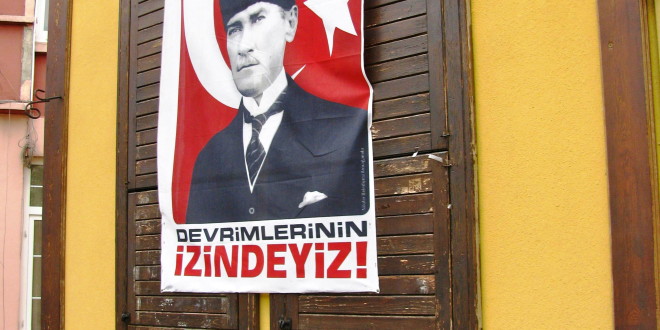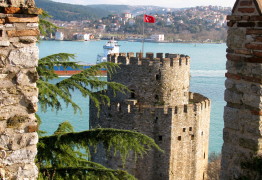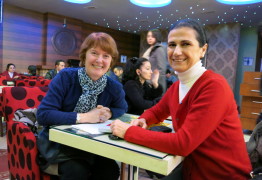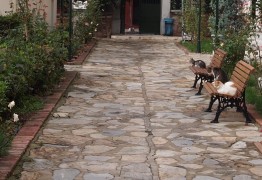The founder of modern Turkey and its president from 1923 to 1938 was Mustafa Kemal Ataturk. Many people reading this blog have heard of Ataturk and perhaps many, like me, have wondered why his name echoes that of his country. It turns out that the name means ‘father of all Turks,’ and he took it after he became the Turkish leader.
Born in Salonika, a part of the Ottoman Empire that is now Greece, he was given just one name, Mustafa, when he was born. Growing up in a Turkish-speaking household, he was bestowed the second name, Kemal, meaning “the perfect one,” by a mathematics teacher. He attended military high school and enlisted in the army. During World War I, Turkey fought alongside Germany, and Mustafa Kemal rose to the rank of Commander. He distinguised himself in the fierce battle for Galliipoli, holding the Turkish position on the peninsula until the Allies retreated.
At the end of the war, the victorious Allies met with the Ottoman Grand Vizier in Sevres, near Paris, to divvy up Turkish territory to Greece, Italy, France and Great Britain. The plan was to leave Turkey with only its Anatolian highlands. A treaty was signed, but the military was beginning to overshadow the weak Ottoman rulers. Mustafa Kemal, now one of ıts highest-ranking officers, refused to accept the treaty, and ınstead inspired his countrymen to continue fighing. Although weary and impoverished, Turks formed a national army under his leadership. The struggle for Turkey lasted three years, during which, I am told, Turkish men fought and Turkish women did the work of pack animals, carrying food and other essentials on their backs.
In 1923, Mustafa Kemal’s army declared victory, and Turkey remained intact. Mustafa Kemal became the first president of the secular Republic of Turkey, governing via a one-party system. He immediately set to work to modernize his country, abolishing the sultanate in 1922 and the caliphate in 1924, effectively breaking the back of the country’s religious leadership. Nonreligious himself, he commented, “The religion of Islam will be elevated if it will cease to be a political instrument. . .”
Newly named Kemal Ataturk, he turned to other sweeping reforms, abolishing religious clothing such as the veil and the fez, changing the alphabet from the Arabic script to the Latin script, decreeing that every Turk must have a last name, giving women the vote, and changing the weekly day of rest from Friday to Sunday. A list of his many other reforms is too lengthy to include here.
It is hard for me to think of a modern leader more effective than Kemal Ataturk in pulling his people into modernity. The man’s ferocious strength and imposing will in the interest of positive change are perhaps unmatched in the twentieth century. Given Turkey’s prominence and peacefulness in a troubled region, I believe Turkey was immensely fortunate to have had him.
73 years after Ataturk’s death, he is still revered more than any other Turkish leader, and his viewpoints form the basis for one of the major political parties. To commemorate his death, at 9:05 a.m. each November 10 a minute of silence is observed and people leave their houses, get out of their cars, and stand in respect.
It is quite common to see pictures of Ataturk in commercial and government establishments and imposing statues of him in parks, and there is an Ataturk Bulvari (boulevard) in most every Turkish town. The little language school I attended last fall was typical, with a photo of him hanging in every classroom and quotes from his speeches printed on placards in the hallways. Every day when I am out and about, I can count on seeing Ataturk’s picture.
Great leaders appear unpredictably and cannot be planned for, scheduled or created. There is something magical about the right person taking over at just the right time in a country’s history. It is difficult not to subsequently canonize a leader of this caliber, taking everything he said as absolute authority. But unfortunately,time and circumstances change. Nearly eighty years after Ataturk’s death, situations continually arise here in Turkey that he never faced and couldn’t have anticipated. How much of Ataturk’s wisdom should be applied to these new issues and how much should Turks look for independent solutions, including those that might be at odds with his ideas?




Thanks for the great history lesson!